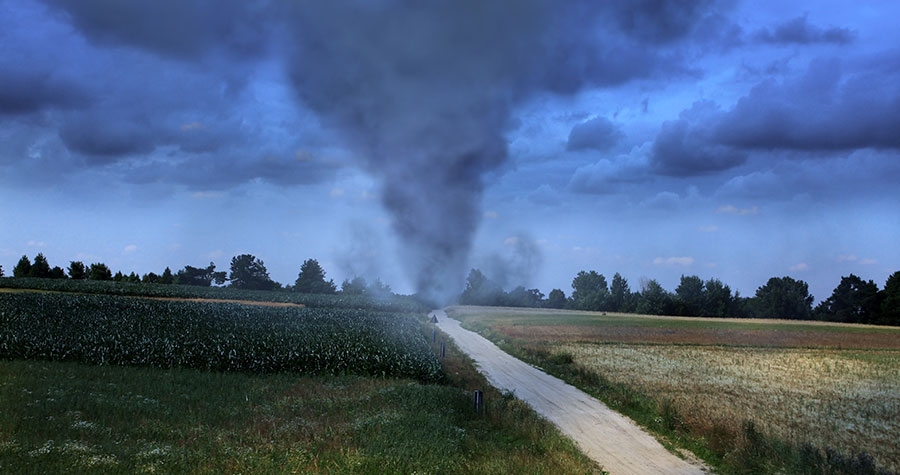Terms to Know
Tornado Watch
Is issued when conditions are favorable over a large area for severe thunderstorms and tornadoes to develop. Listen to NOAA Weather Radio and your local media for weather updates and stay informed!
Tornado Warning
A tornado has been detected or seen, is on the ground and moving and is expected to move through your area soon. You should TAKE COVER IMMEDIATELY!
Act Now to be Prepared
- Know which county you live in and which ones border your community as you monitor weather broadcasts.
- If you're on vacation or driving through an unfamiliar area, remember the county you are in and where you are in relation to other towns and cities.
- Know how to get to a safe place quickly if a warning is issued by developing a plan for you and your family at home, work, school, and when outdoors.
- Have disaster supplies on hand, including:
- Flashlight and extra batteries
- Battery-operated radio and extra batteries
- First aid kit and manual
- Emergency food, water, and essential medicines
- Non-electric can opener
- Checkbook, cash, credit cards, debit and ATM cards
What to Do
The key is to remain CALM, but take IMMEDIATE action.
If you are outdoors
- Seek shelter in a substantial building immediatley.
- If there is no shelter nearby, lie flat in a ditch or low spot with your hands shielding your head.
- Do not try to outrun a tornado in your car; instead, leave it immediatley.
If you are at home or in a small building
- Go to basement or an interior room on the lowest floor. Stay away from windows.
- Closets, bathrooms, and other interior rooms offer the best protection.
- Get under something sturdy or cover yourself with a mattress.
If you are in a school, hospital or shopping center
- Go to a pre-designated shelter area.
- Stay away from large open areas and windows.
- Do not go outside to your car.
If you are in a high-rise building
- Go to an interior small room or hallway on the lowest floor possible.
- Do not use the elevators. Use the stairs.
If you are in a mobile home or vehicle
- Get out of mobile homes or vehicles, they are easily tossed about by strong winds in the tornado.
- Take shelter in a substantial structure.
- If there is no shelter nearby, lie flat in a ditch or low spot with your hands shielding your head.
After the Storm
- Help injured or trapped persons. Do not try to move the seriously injured unless they are in immediate danger of further injury.
- Turn on radio or television to get the latest emergency information. Obey all curfews and emergency orders.
- Avoid all downed power lines. Assume they are have electricity.
- Stay out of damaged buildings. Return home only when authorities say it is safe.
- Use the telephone only for emergency calls.
- Clean up spilled medicines, bleaches, or gasoline or other flammable liquids immediately. Leave buildings immediately if you smell gas or chemical fumes.
- Take pictures of the damage -- both the house and its contents -- for insurance purposes.
- Check on neighbors who require special assistance: infants, the elderly, and people with disabilities.
- If you must drive, use caution. Stay away from disaster areas. Do not sightsee!

